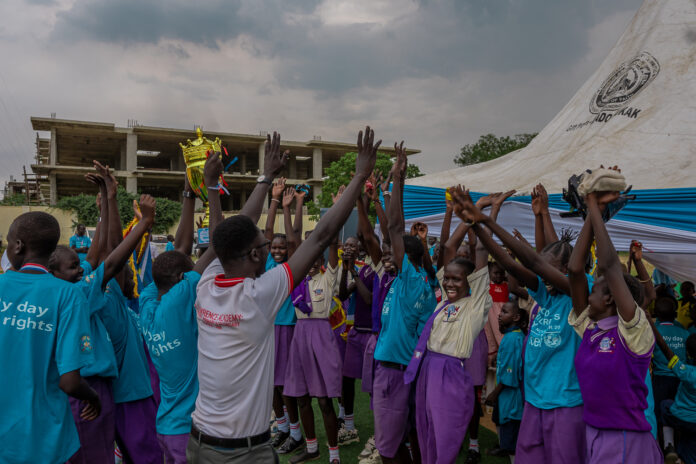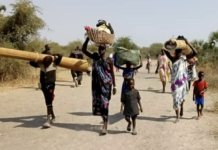The UN Children Agency (UNICEF) has called on the Government of South Sudan and development partners to significantly increase investments in essential social services, warning that millions of children remain deprived of their fundamental rights to education, healthcare, nutrition, clean water, and protection.
The appeal came as the country joined the global community in commemorating World Children’s Day, observed every year on 20 November to mark the adoption of the Convention on the Rights of the Child. This year’s theme, “My Day, My Right,” highlights the universal and non-negotiable nature of children’s rights.
UNICEF expressed concern over low domestic spending on key services that support children’s well-being. The agency urged authorities to allocate and execute budgets that directly benefit the country’s youngest citizens.
“Children in South Sudan are bearing the brunt of multiple shocks that are not of their making from the climate crisis and insecurity to the far-reaching impacts of multi-dimensional poverty,” said Noala Skinner, UNICEF Representative in South Sudan.
“Prioritizing domestic investments in children’s education, health, nutrition, access to clean and safe water, and protection is critical to both the country’s development and the fulfillment of every child’s rights.”
Skinner added that UNICEF remains committed to working with the government and partners to advance child rights, noting that while donor support continues to play a vital role, sustainable progress depends on long-term, consistent national funding for social services.
This year’s commemoration coincides with the G20 Social Summit in South Africa, offering a global platform to elevate children’s issues. UNICEF also released its flagship report, “The State of the World’s Children 2025:
Ending Child Poverty – Our Shared Imperative,” which warns that despite notable gains, child poverty remains widespread, and progress is stagnating amid overlapping crises.
The report stresses that without urgent and coordinated action, millions more children risk being left behind, their well-being and futures jeopardized.





